Thinking of driving in Florida and want to know about the Florida road rules? You are in the right place. In this article, we will walk you through the driving laws in Florida, Florida driving and the things we think you need to know.
Perhaps you are from out-of-state and just want to know how driving in Florida differs. Or perhaps this is the first time you have driven in the states and you want to know how Florida road rules differ to back home.
In this article, we will answer all the questions we feel you might have about driving in Florida. The first eight tips are for people who have never driven in the States before and from nine onwards we will discuss things that might differ in Florida to other States.
There is no doubt that Florida offers some of the world’s most scenic driving routes. Anyone who has ever driven to the Florida Keys can vouch for this experience. Our large, well kept, and well-signposted roads make driving in this State a pleasant experience.
Florida is a great State for road-tripping for some ideas take a look at our 15 Fun Florida Road Trips For Your Bucket List.
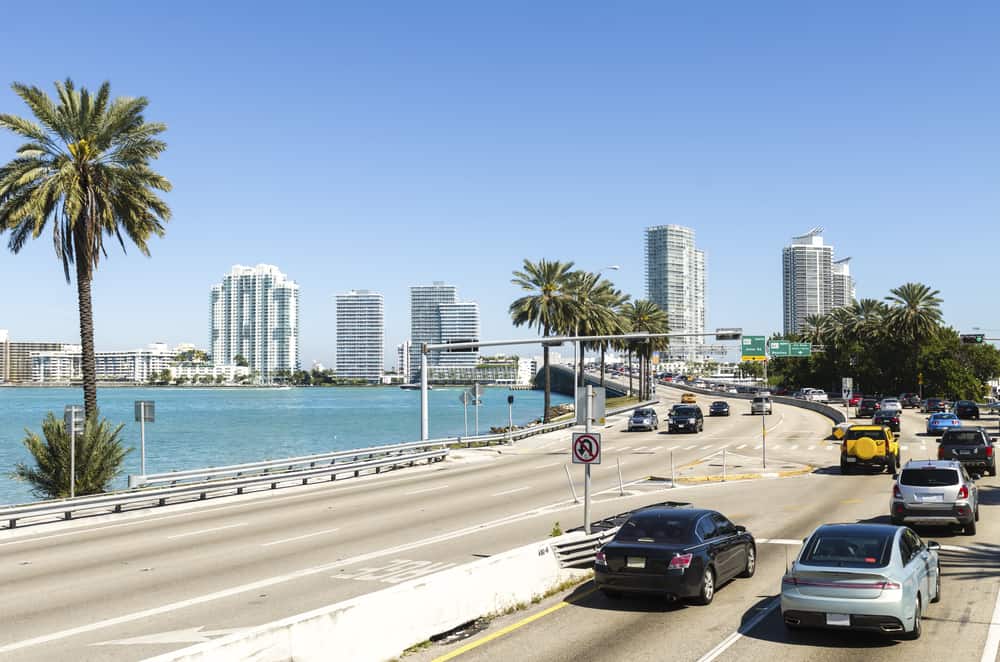
17 Things To Know Before Driving In Florida
We drive on the right
Mainly for our English and Australian readers, this is a reminder that we drive on the right. As the driver, you will be sat on the left-hand side of the car. We hear that driving in Florida can take a little getting used to so take your time. The roads in Florida are wide and straight though so it’s not as daunting as it can first sound.
Most cars are automatic
The majority of American cars are automatic and if you are hiring a car it will definitely be automatic. Most Americans don’t know how to drive a manual car.
There will be no clutch pedal and you will use your right foot to brake and accelerate. Move the gear stick to ‘D’ for ‘Drive’, ‘R’ for reverse, and ‘P’ to park.
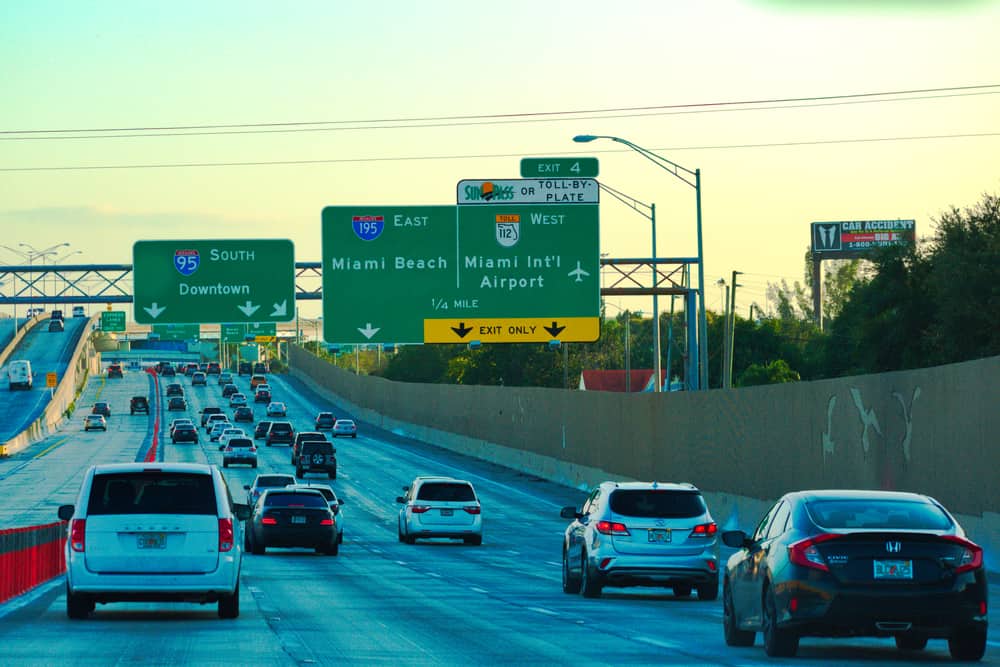
You can turn right at a red light
Like most other States in Florida, you can turn right at a red light unless there is a sign that says “no right on red”. You must come to a complete stop, check the way is clear and then turn when it’s safe to do so.
Turning left
If you are from the UK, Australia, or another country that drives on the left treat a left turn like a right turn in your country. Busy junctions often have a left filter lane making driving in Florida a little easier.
You might also see a sign that says ‘left turn yield on green’. This sign lets you know that on a green light you can turn left if the way is clear, you do not have to wait for the left lane filter light.
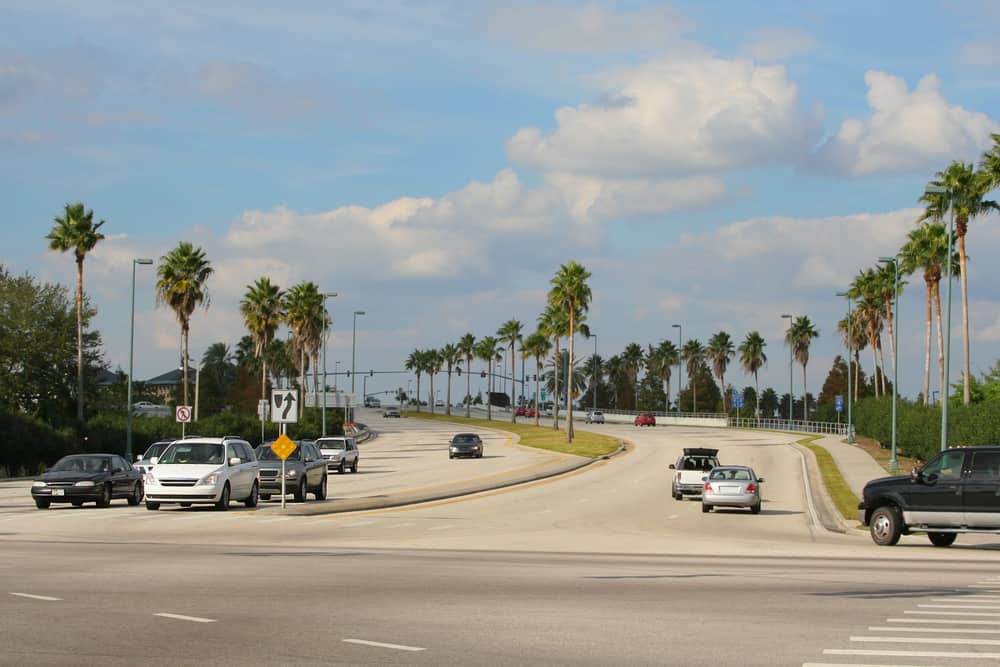
Gas stations
American’s refer to petrol/fuel as Gas and it is measured by the gallon. Sometimes you are required to pay upfront before fuelling up and are refunded any difference. Some pumps require you to pull a lever/switch before gas comes out so be aware of that.
If you are renting a car check what gas it uses as it isn’t always obvious.
Making U-Turns.
Unlike some other countries, you can make a U-turn at the end of most junctions. If you can’t it will be marked clearly. if you are struggling with a left turn making a U-turn at the end of the junction is something easier and American cars tend to makes these turns much easier.
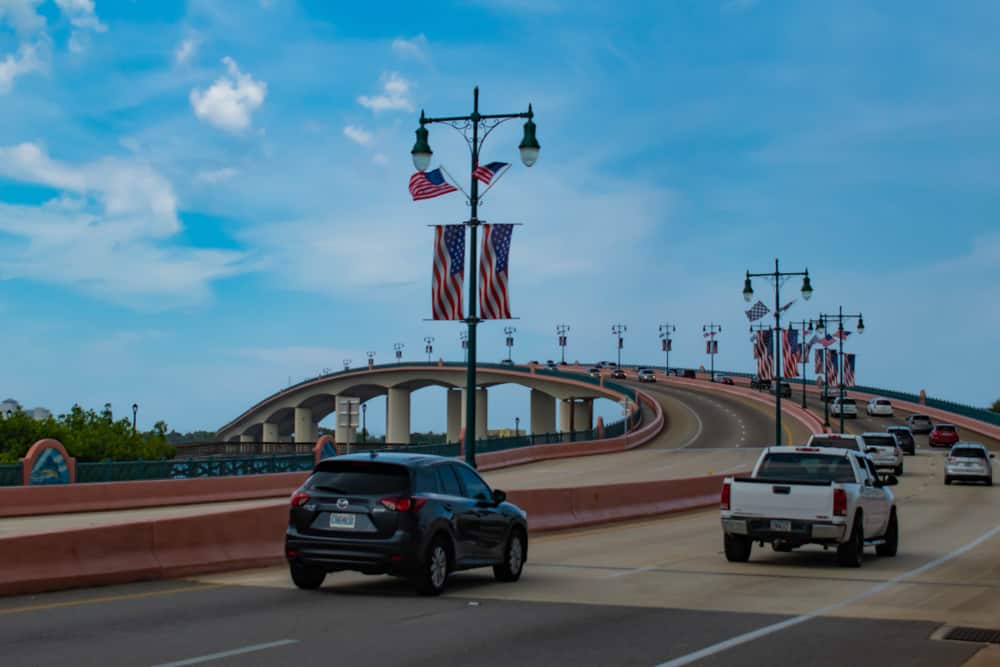
Pulled over by the police
If you are driving in Florida and get pulled over by the police stop as safely and as quickly as possible. Do not get out of the vehicle. Stay in your car wind down the window and follow their instructions.
When a police car is stopped assisting a motorist or on a routine stop, you must move to the far lane or slow to 20 miles per hour below the speed limit.
Road signs
Our road signs can be a little confusing if you are not used to driving in the States. Traffic lights/signals are not at the side of the road but high in the middle of the road.
The overhead signs show the road you are crossing and not the road you are on. You may have to look up and ahead of you to find signs rather than on the side of the road.
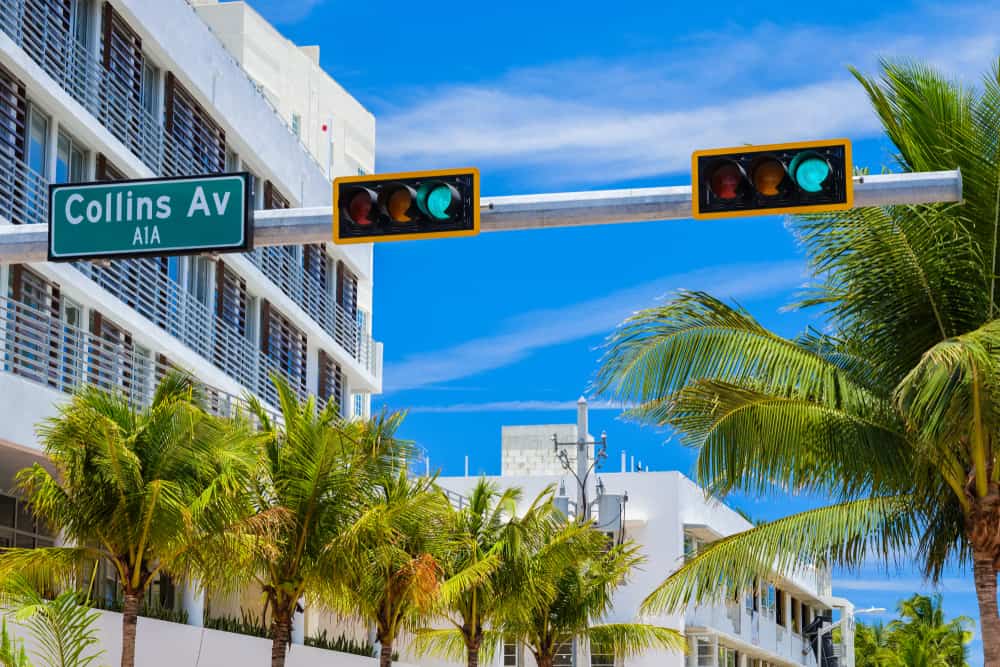
Driving on the toll roads
If you are driving in Florida you will have to get used to toll roads. Florida has more toll roads than any other State. Keeping track of all the toll roads can be a bit confusing.
Some are cashless tolls, some take cash and all seem to charge different rates. Some booths are manned some are not.
It might be easier to get a Sunpass and you might also consider the Tollsmart calculator app. Just plan your journey and see what tolls are ahead.
If you are renting a car, look at the small print as you can find yourself paying an extra daily fee when it comes to tolls.
Child safety seat laws and seatbelts
Florida law requires the wearing of seatbelts. Children 5 and under must be secured properly in a crash-tested, federally approved child restraint device. If you are renting a car they will normally provide these items upon request.
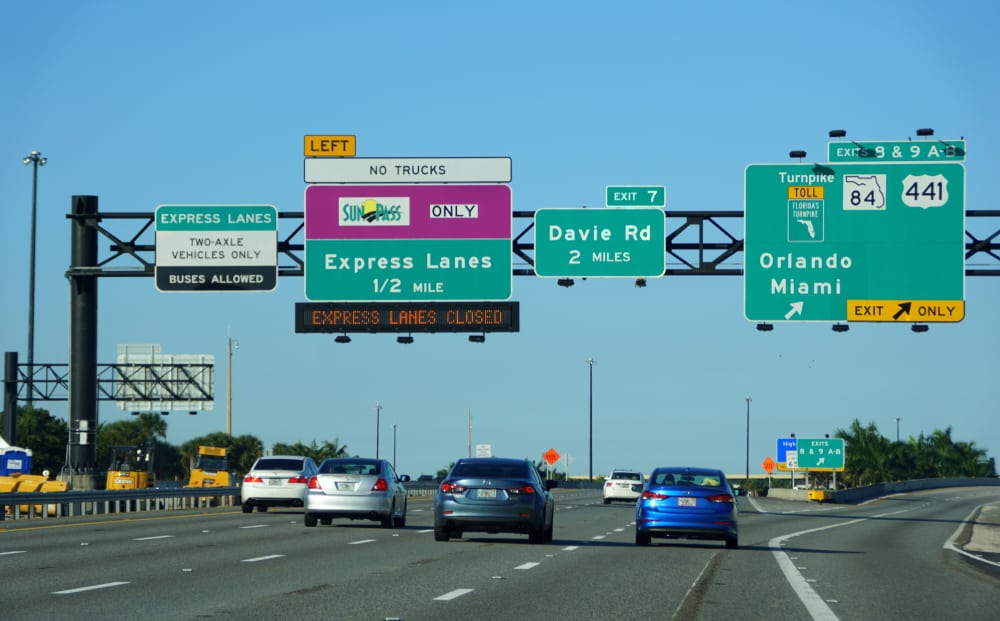
Headlights
Headlights must be on from dusk until dawn and in fog and rain. At manned toll booths please turn off your wipers.
Rain and shine
Driving in Florida can be an experience. The downpours in Florida can be very very heavy and sudden. Please be careful in heavy rain and pull over if you need to. These showers often pass quickly.
We also always recommend you always have fresh cool water in the car in case of a breakdown. Florida, as I’m sure you are aware can get very very hot.
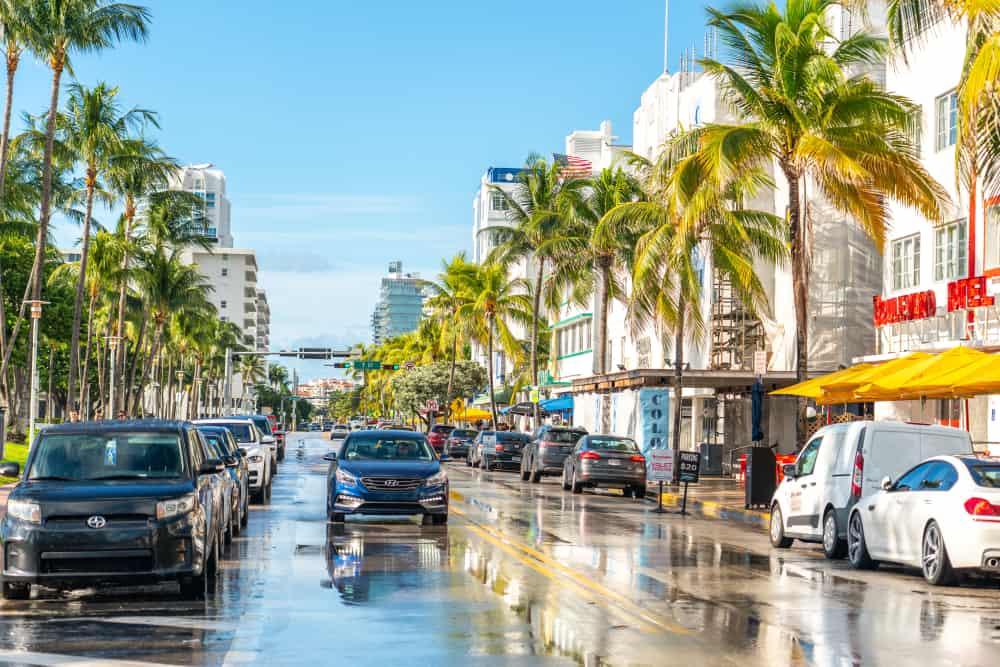
Alcohol
Florida prohibits driving or being in actual physical control of a vehicle if you have a blood alcohol concentration (BAC) of .08% or more. This normally relates to approximately two beers.
If you are under 21 the limit is (BAC) of . 02% or more.
It is also illegal to have any open alcoholic containers in your car. If you are driving in Florida it is best to store any alcohol out of sight and in the trunk.
Speed limits
The speed limit signs are white and black and are on the side of the road.
The 55 m.p.h. speed limit is still in effect in Florida except where otherwise posted. Some interstate highways have a limit of 70 mph but don’t assume this and look for signs.
The speed limit in Florida can change according to lots of factors such as the are population and amount of lanes etc: so make sure you keep an eye on the signs.
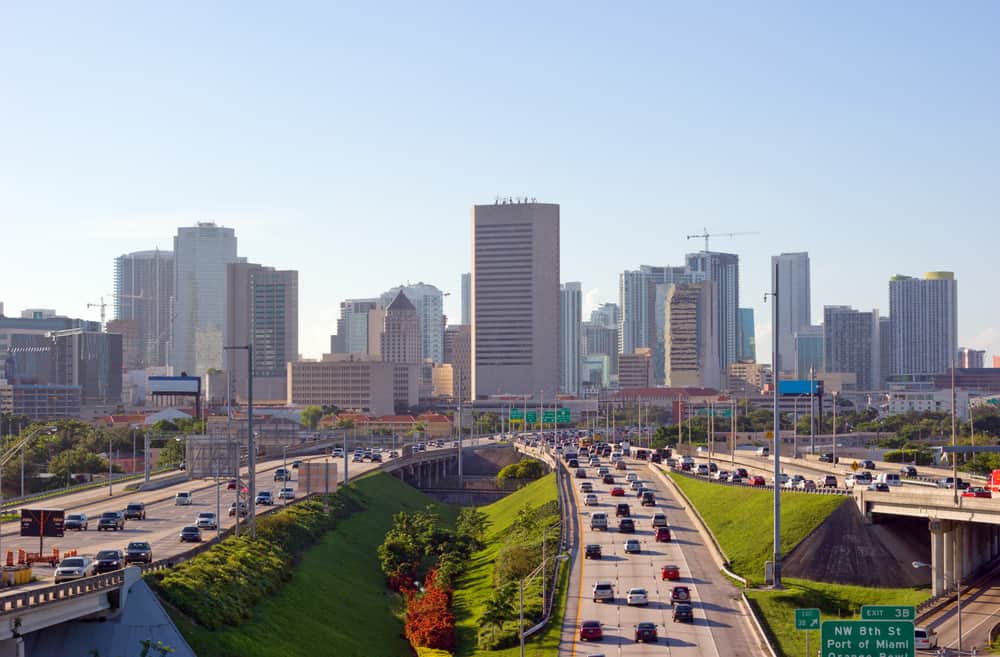
Driving ages
To get a learners permit in Florida you just be between 15 and 17 years old.
To get a Class E driver’s license you must be over 16 years and you must have one after 18. If you are under 18 you must have your learner’s permit for 1 year without any traffic convictions.
To hire a car in Florida you must be over 21. 21-24-year-olds may find themselves paying a young renters fee so keep that in mind.
Speed traps
The worse thing about driving in Florida is speed traps. Florida came third on a list of the States with the most speed traps. Florida also has been known for excessive speed trapping. Waldo a tiny village with 7 police officers issued 12,000 speeding tickets in one year. An investigation into the town led to the disbandment of the entire Waldo police force.
Florida let’s say does have the the reputation of excessive speeding traps.
While we never condone spading the legitimacy of speed traps is questioned by many. Speed traps tend to a section of the road where secret police, radars, speed cameras strictly enforce speed limits. The appropriate speed limit signs are often distinguished or hard-to-see.
Most people feel these speed traps are more to do with making money than public safety. We suggest you search online or ask locals about speed traps.
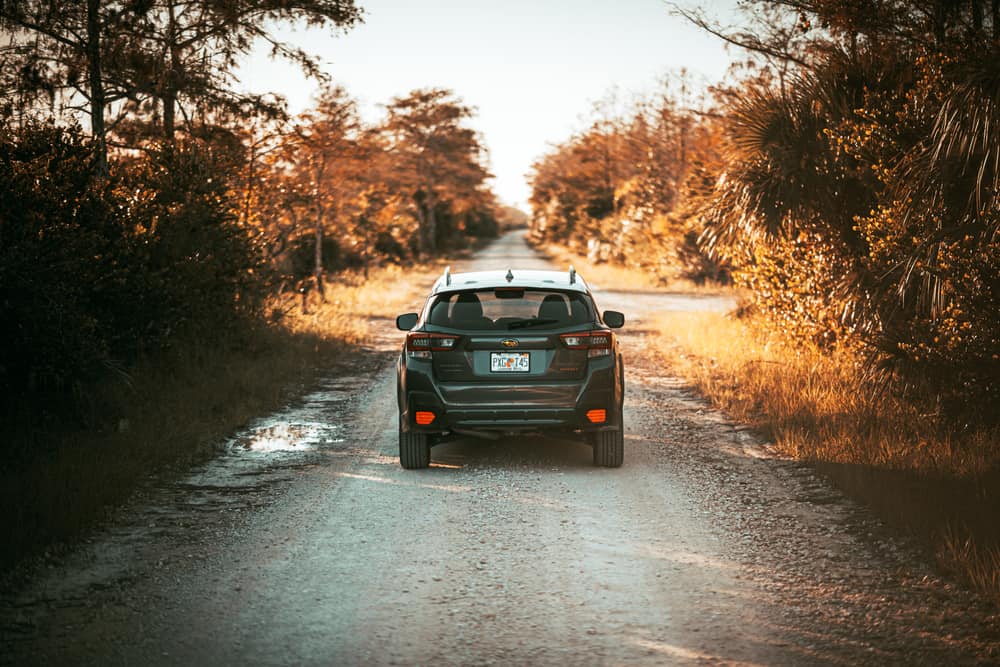
The Interstate 4
If you find yourself traveling on the I-4 between Tampa and Daytona please take extra care. It has been named the most dangerous highway in the country with an average of 1.25 fatalities for each mile.
Construction is currently taking place to try and ease the traffic and is expected to be completed in 2021. The problems are believed to be due to the volume of traffic, the constant road construction, and the number of commercial vehicles on the road.
If you do have to travel on this road please stay alert. We recommended that you reduce any distractions, allow at least a full car length for every ten miles per hour of speed, keep an eye on your surroundings, and don’t speed.
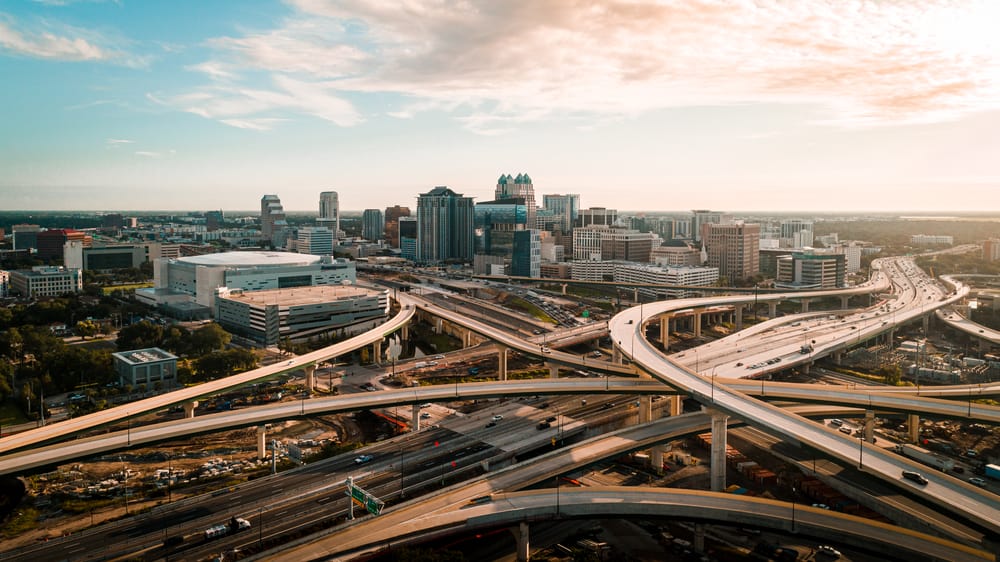
We do hope we have covered everything you need to know about driving in Florida in this article. If you do have any questions about Florida road rules or driving laws in Florida please do ask us.
Have a great time on our highways and let us know how it goes.
For information: Drivers may dial *FHP (347) on Florida interstates and highways in an emergency to reach the Florida Highway Patrol.
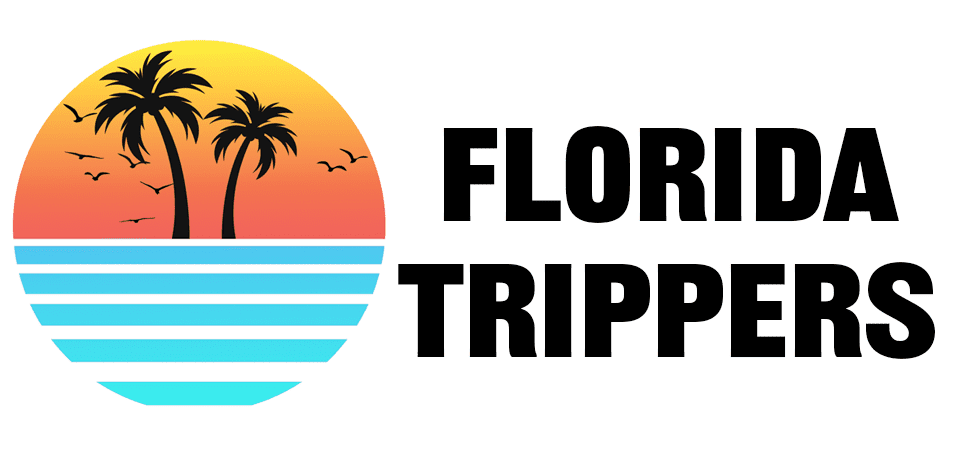
 12 Best And Worst Florida Airports, Ranked!
12 Best And Worst Florida Airports, Ranked!